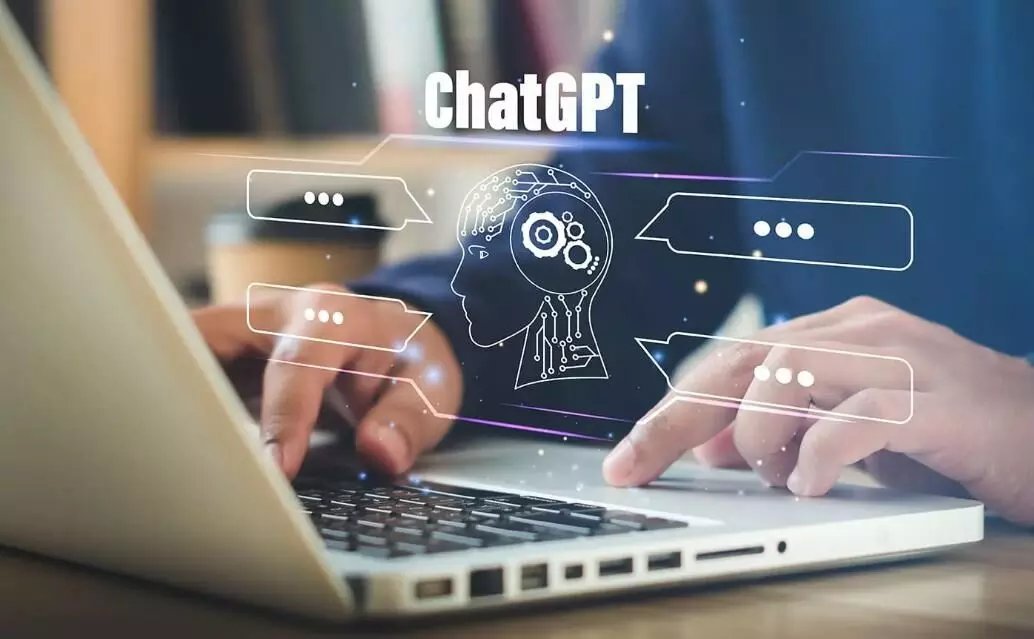ChatGPT won’t reduce jobs but will create many more
The emergence of ChatGPT has the potential to alter the job market. So, it’s important to focus on upskilling and reskilling to advance in your career and stay competitive

Will ChatGPT replace my job?” The arrival of ChatGPT, an AI chatbot, has understandably sparked concerns about the potential for AI to replace human jobs. Some jobs might indeed be at risk, but then throughout history, we have seen how technological advancements have disrupted job markets and created new opportunities.
Despite the lingering fear that ChatGPT and AI will reduce jobs, it will result in the creation of more jobs. According to the World Economic Forum Future of Jobs Report, 97 million new jobs will be created by 2025 due to AI.
“The rise of ChatGPT and other AI-powered chatbots may cause employment losses in some industries, especially those that primarily rely on manual labour or repetitive tasks that are amenable to automation. Yet, it’s crucial to keep in mind that AI technology can also generate new employment prospects in other sectors, including machine learning, data analysis, and AI development,” said Saloni Chitkara, associate professor (Operations), Jaipuria School of Business, Ghaziabad. So, ChatGPT will not remove humans from jobs, rather it will reduce repetitive work, and increase work efficiency to tackle more complex operations.
From data analysts, financial strategists, prompt engineers, machine learning engineers, and ethics and privacy specialists to language model engineers, ChatGPT will create new specialised jobs that require new skill sets.
In fact, in the age of ChatGPT, humans will need to upskill and reskill. We will need to learn new skills and brush up on our soft skills like empathy and emotional intelligence to set ourselves apart from ChatGPT.
“Like every path-breaking innovation, ChatGPT will create new specialised jobs that require new skill sets. We can also boost business productivity by implementing ChatGPT solutions in various use cases and also integrate ChatGPT API into website development projects,” said Dr Jones Mathew, professor in marketing, Great Lakes Institute of Management, Gurgaon.
In a report, PwC mentioned how job opportunities could increase by nearly one million in the healthcare industry from AI. Also, the demand for AI-assisted technician jobs will see a spike.
“Already ChatGPT has created new jobs like prompt engineers, machine learning engineers, ethics and privacy specialists working along with large language models. Many more job opportunities will be created by using ChatGPT-like applications. For example, writing content can be done by less trained people or images, videos and presentations can be made by non-specialists using these platforms. A new breed of content creators would emerge,” said Prof Sanjiva Dubey, chairperson — Centre of On-line Studies (COOLS) and Head of IT Area, BIMTECH.
ChatGPT has the potential to revolutionise the customer service industry on how businesses engage with customers. With the ability to handle multiple conversations, this chatbot can provide quick solutions to customer inquiries.
“AI will change the world in terms of the nature of work. It will, without a doubt, make certain tasks redundant, whilst ensuring that others can be done more efficiently without human intervention, thereby making some jobs that exist today irrelevant, whilst at the same time creating new opportunities of a different nature across industries. This includes work, especially in domains like technology, finance, HR and academic content,” said Arjun Wadhwa, CFO Career Launcher, edTech arm of CL Educate Ltd.
In fact, those in content creation are worried about the advent of ChatGPT. Well, human writers will not be replaced by ChatGPT, rather it will streamline the workflow. “ChatGPT will help the content team to churn out news books and study material at a more rapid pace than it can do so today,” added Wadhwa.
According to Mohan Silaparasetty, head-technology programmes of an edtech firm, the evolution of ChatGPT is very similar to the industrial revolution and the IT revolution.
“ChatGPT is an excellent AI productivity tool that will help in drastically increasing the output. However, we will need humans to handle and make the best use of this tool. This will result in new job roles like prompt engineers, ChatGPT trainers and language model engineers. There will be a need for large-scale upskilling on ChatGPT that will need trainers. Also, ChatGPT is based on Large Language Model or LLM. There will be several variations of ChatGPT and more and more products like ChatGPT will be available, which will require language model engineers,” he said.
Anant Bengani, co-founder and executive director at Zell Education, informed Millennium Post that by developing the skills and expertise needed to work with AI technology, professionals can position themselves to thrive in the age of ChatGPT.
“From technical skills, critical thinking, problem-solving skills, communication, adaptability and flexibility, professionals will need a variety of skills that will be valuable in the age of ChatGPT,” he said. Bengani further added: “ChatGPT itself will require a wide range of skills and expertise to develop, maintain, and improve upon. So, there will be a growing demand for data analysts, AI consultants, financial strategists, cybersecurity professionals, compliance and regulatory professionals.”
ChatGPT is still in its early stages, but as technology continues to evolve, it will be important for professionals to adapt to new tools, technologies, and processes. So, it depends on individuals and companies to adapt and evolve in the age of changing technology.



